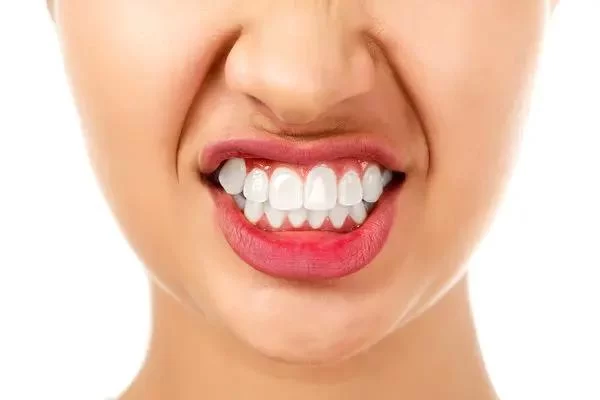
How to Avoid Teeth Grinding and Clenching: Practical Tips for Better Oral Health
- 1. Understanding Teeth Grinding and Clenching
- 2. Why People Grind and Clench Their Teeth
- 3. Health Risks of Teeth Grinding and Clenching
- 4. Effective Methods to Avoid Teeth Grinding and Clenching
- 5. Lifestyle Changes to Reduce Teeth Grinding
- 6. Real-Life Stories of Successfully Managing Teeth Grinding
1. Understanding Teeth Grinding and Clenching
Teeth grinding (bruxism) and clenching occur when you unconsciously grind or clench your teeth, typically during sleep or times of stress. Over time, these habits can lead to serious dental issues, including worn-down teeth, jaw pain, and even tooth loss. Understanding the causes and effects of teeth grinding and clenching is essential in finding effective ways to avoid and treat these conditions.
Teeth grinding is a common issue that many people face, especially during stressful times. It’s not always easy to recognize, as people often do it subconsciously, especially while asleep. In this article, we will explore how to avoid teeth grinding and clenching to protect your oral health and well-being.
2. Why People Grind and Clench Their Teeth
There are various reasons why people grind and clench their teeth. Understanding these triggers can help you manage the behavior effectively:
- Stress and Anxiety: One of the most common reasons for teeth grinding is stress. People often clench their teeth during stressful moments, such as work pressures, family concerns, or anxiety.
- Sleep Disorders: Conditions like sleep apnea or insomnia may lead to grinding and clenching at night, as the body tries to compensate for disrupted breathing or inadequate rest.
- Misaligned Teeth or Jaw Issues: When the teeth are misaligned or the jaw is not properly positioned, the bite can lead to unnecessary pressure on the teeth, causing grinding or clenching.
- Certain Medications: Some medications, particularly antidepressants, can increase the likelihood of teeth grinding and clenching as a side effect.
By understanding the underlying causes of teeth grinding and clenching, you can better address these issues and take steps to avoid them.
3. Health Risks of Teeth Grinding and Clenching
Left untreated, teeth grinding and clenching can lead to several health problems, including:
- Tooth Damage: Constant grinding wears down the enamel, making teeth more susceptible to decay, sensitivity, and even cracks.
- Jaw Pain: Clenching and grinding can strain the jaw muscles, leading to temporomandibular joint (TMJ) disorder, which causes pain, discomfort, and even difficulty opening the mouth.
- Headaches: The tension in the jaw muscles can radiate to the head, causing frequent headaches, including tension headaches and migraines.
- Gum Recession: The constant pressure on the teeth and gums can lead to gum recession, making teeth more vulnerable to infections.
Preventing and managing teeth grinding and clenching is essential to maintaining good oral health and avoiding these long-term complications.
4. Effective Methods to Avoid Teeth Grinding and Clenching
Here are some effective strategies to avoid teeth grinding and clenching:
- Use a Night Guard: A custom-fitted night guard can help prevent teeth grinding while you sleep. This device cushions the teeth and protects them from excessive pressure.
- Practice Relaxation Techniques: Reducing stress and anxiety is key to preventing teeth grinding. Meditation, deep breathing exercises, or yoga can help promote relaxation and reduce the urge to grind or clench your teeth.
- Avoid Stimulants: Limit your intake of caffeine or nicotine, especially before bedtime. These substances can increase muscle tension and contribute to teeth grinding.
- Correct Your Bite: If your teeth are misaligned, visiting a dentist for professional orthodontic treatment or a bite adjustment may help alleviate the pressure that causes grinding and clenching.
By taking these steps, you can significantly reduce the occurrence of teeth grinding and clenching and protect your dental health.
5. Lifestyle Changes to Reduce Teeth Grinding
Making some lifestyle adjustments can further help prevent teeth grinding and clenching:
- Establish a Bedtime Routine: Create a relaxing nighttime routine, such as reading a book, taking a warm bath, or listening to calming music, to help reduce nighttime stress and tension.
- Get Enough Sleep: Ensure you’re getting enough quality sleep each night. Sleep deprivation can contribute to teeth grinding and clenching.
- Exercise Regularly: Regular physical activity helps reduce overall stress levels and promotes better sleep, both of which can reduce the urge to grind or clench your teeth.
Making these changes in your lifestyle can have a profound impact on your overall health and your efforts to avoid teeth grinding and clenching.
6. Real-Life Stories of Successfully Managing Teeth Grinding
Many people have successfully reduced or stopped grinding and clenching their teeth with a combination of professional treatments and lifestyle changes. For instance, Sarah, a 42-year-old woman, struggled with severe teeth grinding for years. After consulting her dentist, she was fitted with a night guard and started practicing daily relaxation techniques. Within a few weeks, her symptoms improved significantly, and she no longer wakes up with jaw pain or headaches.
These real-life experiences show that with the right approach, teeth grinding and clenching can be managed and even eliminated, improving overall oral and physical health.







 Community Dental Care - St. Paul3.0 (105 review)
Community Dental Care - St. Paul3.0 (105 review) Biologic Dentistry5.0 (810 review)
Biologic Dentistry5.0 (810 review) John U Choi DDS, PhD4.0 (6 review)
John U Choi DDS, PhD4.0 (6 review) Five Points Family Dentistry4.0 (567 review)
Five Points Family Dentistry4.0 (567 review) Smile Spa of Parlin4.0 (89 review)
Smile Spa of Parlin4.0 (89 review) St. Johns Family Dental5.0 (14 review)
St. Johns Family Dental5.0 (14 review) The Importance of Oral Health Education During Pregnancy for a Healthy Pregnancy
The Importance of Oral Health Education During Pregnancy for a Healthy Pregnancy Best Tips for Brushing Your Teeth Properly for Healthy Gums: Essential Techniques for Oral Health
Best Tips for Brushing Your Teeth Properly for Healthy Gums: Essential Techniques for Oral Health Why Skipping Dental Checkups Can Lead to Bigger Oral Health Problems
Why Skipping Dental Checkups Can Lead to Bigger Oral Health Problems Advantages of Porcelain Dental Restorations
Advantages of Porcelain Dental Restorations How Can Diabetes Cause Tooth and Gum Problems? Preventing and Managing Oral Health Issues
How Can Diabetes Cause Tooth and Gum Problems? Preventing and Managing Oral Health Issues Healthy Habits for Promoting Good Oral Health and Hygiene: Tips for a Healthy Smile
Healthy Habits for Promoting Good Oral Health and Hygiene: Tips for a Healthy Smile